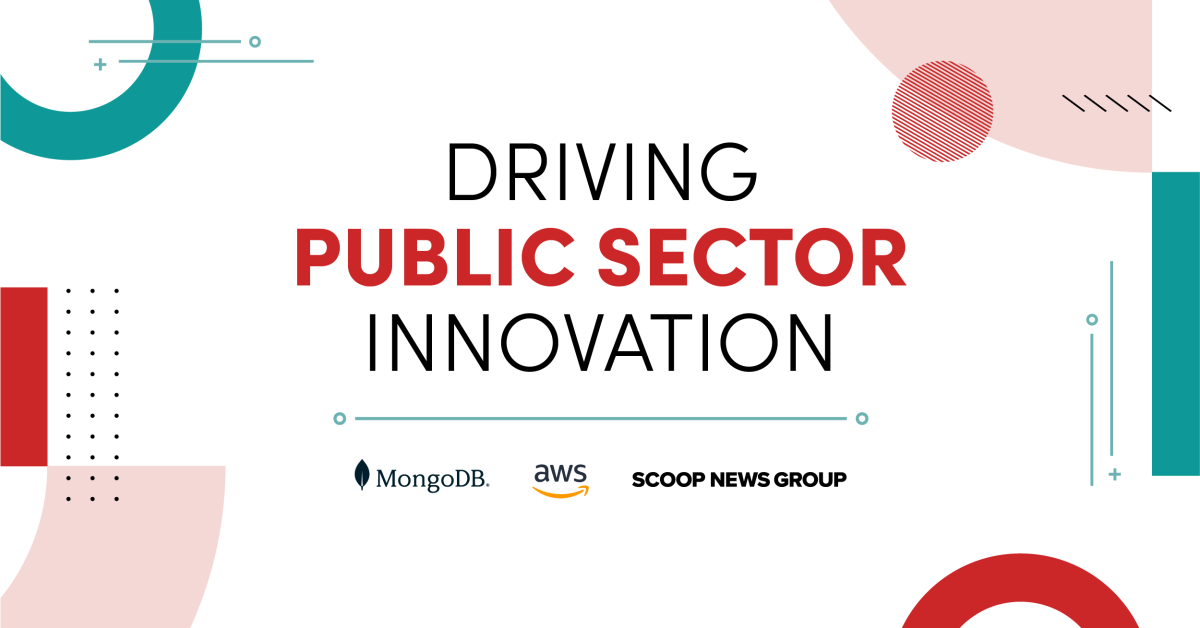- Sponsored
- Insights
Using AI and database technologies to drive innovation

The strategic integration of AI, cloud computing and advanced database technologies is improving operations and decision-making across government agencies. In a new video series, “Driving Public Sector Innovation,” government and industry leaders discuss how these advancements enable organizations to address complex challenges and deliver more effective services.
Enhancing decision-making and operational efficiency
AI-powered database solutions are being leveraged to improve decision-making across various sectors. For example, the U.S. Navy uses AI and cloud computing to enhance data management and streamline decision-making processes. “By centralizing data and leveraging multimodal and graph databases, the Navy is improving the adaptability of data to outcomes, enabling faster and more efficient solutions to complex problems,” says Dept. of Navy Acting CTO and Tech Director for PEO Digital Justin Fanelli.
Meanwhile, the U.S. Army is focusing on AI to address data challenges, particularly in logistics and predictive maintenance, and reduce the workload for financial managers through intelligent automation. “We have about 75 active automations deployed right now, and they save approximately 110 to 120 man-hours per year,” says U.S. Army Business Mission Area Data Officer and Senior Advisor for Data Science & AI Bakari Dale.
Empowering service delivery
Agencies are also using AI and database technologies to enhance the quality and efficiency of service delivery. U.S. Army Corps of Engineers CIO Dovarius Peoples says the agency is applying predictive analytics and AI “to improve disaster relief operations, such as flood management, and better understand customer service trends.”
According to Charles Worthington, CTO of the Department of Veterans Affairs, the organization is adopting AI tools to reduce clinician burnout by automating tedious tasks like data entry and medical record management. “Additionally, modern database technologies are being used to improve data analysis for better patient outcomes,” he says.
Strengthening security and resiliency
When it comes to cybersecurity, AI and database technologies are playing a crucial role. For instance, the State Department’s Bureau of Diplomatic Security is embracing AI to handle the vast amounts of data generated by logs and sensors to improve cyber defense. “The use of AI helps detect and respond to threats more efficiently, enhancing the overall security posture of the organization,” says Manny Medrano, the State Department’s Office Director for the Office of Cyber Monitoring and Operations.
For the Federal Communications Commission, cloud solutions also improve security, agility and cost management. “Security is much more enhanced – the security is built in, the compliance is built in,” says FCC CIO Allen Hill.
Overcoming challenges with technology
Cities and states are also benefiting from these advancements. Los Angeles is leveraging AI and databases to address challenges like homelessness, graffiti and emergency response to extreme weather events. “By taking advantage of AI for tasks like classifying service requests or predicting emergency needs, the city can improve both the efficiency and equity of its services,” says City of Los Angeles CIO Ted Ross.
For the State of Utah, automation and AI are helping in service delivery and operational efficiency. “Implementing AI and robotic process automation to handle tasks like invoice processing and application development allow us to operate more efficiently and effectively,” says Utah CIO Alan Fuller.
Andrew Davidson, SVP of products for MongoDB, says these new technologies can transform government agencies – and the constituent experience as a result. “Agencies will have the ability to meaningfully get ahead so that the citizen feels like they’re getting assistance almost before they thought they needed it,” he says.
This video series was produced by Scoop News Group, for FedScoop and StateScoop, and sponsored by MongoDB and AWS.






